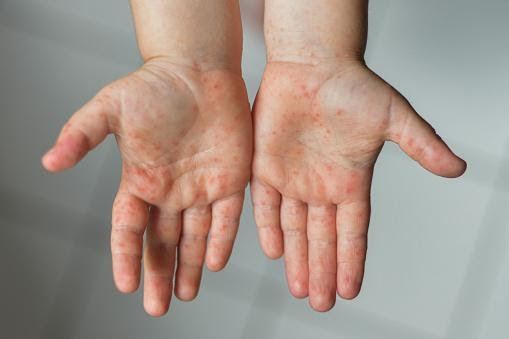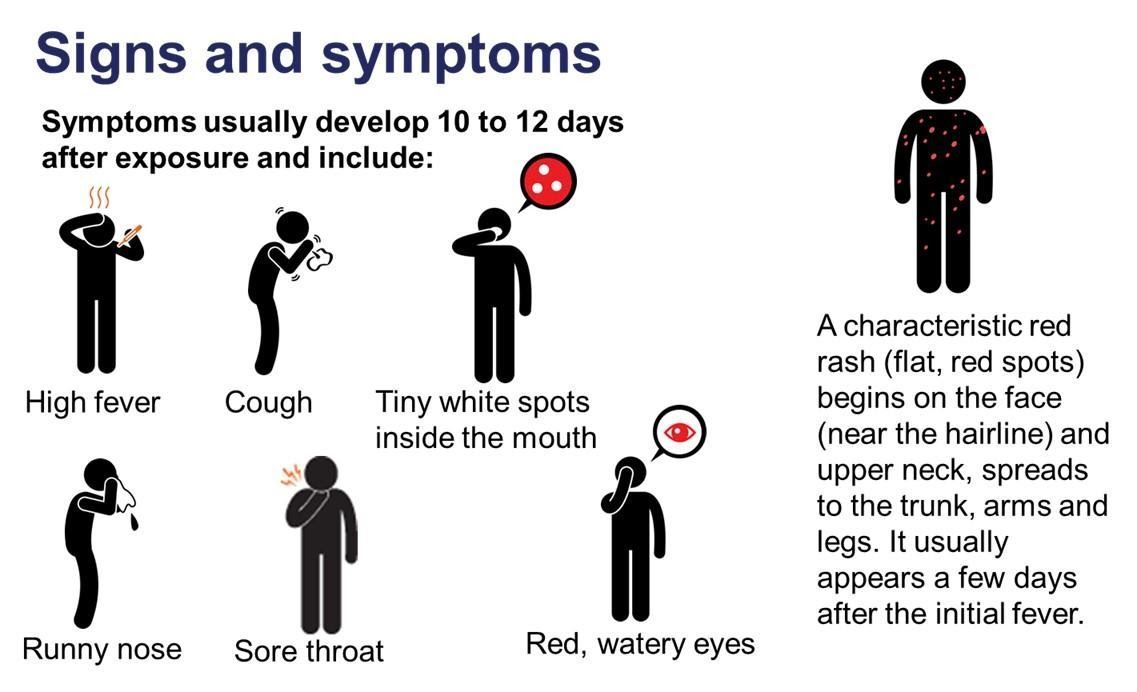
Rubeola, more commonly known as Measles, is a viral infection primarily affecting a person’s respiratory system. It spreads through the air via droplets from an infected person. Measles is highly infectious but can be easily prevented through vaccination.
Is there a Measles outbreak in the Philippines?
In Manila, cases multiplied ten-fold from 351 cases in 2017 to 3,646 cases in 2018. By February 2019 a surge in measles cases prompted health authorities to declare an outbreak in Metro Manila. More than 35,000 cases were reported with a fatality rate of 1.37% nationwide. This outbreak may be partly caused by the rapid decrease in compliance to vaccinations since 2017 in the Philippines due to the Dengvaxia controversy.
How does measles affect a person?
The infection may start like any flu-like syndrome – fever, cough and red eyes. The start of the infection is then followed by itchy rashes which spread from the head to the chest, arms and legs.
A person is considered contagious 4 to 14 days after the appearance of the rash. Complications may include ear or lung infections. This can be very serious to those who are unvaccinated, particularly young children.

What is the treatment for Measles?
The treatment for measles is supportive – paracetamol is given for fever and antihistamines for the itchy rashes and redness. No antivirals are indicated for measles as healthy individuals can produce antibodies to fight the disease.
How can the spread of measles be prevented?
Measles is considered to be very contagious as it is transmitted through droplets from sneezing and coughing with the ability of the virus to remain airborne for the next two hours. To minimize the spread of measles and to recover from the illness, infected patients are advised to stay indoors, stay hydrated, take their medications and practice frequent hand washing.
Measles can be prevented through vaccination. The first dose of the measles vaccine is given at age 9 months. Infants and children should receive two doses of the vaccine in combination (measles, mumps, rubella or MMR vaccine) in their first year and the second dose one month later. Adults should also be updated with their MMR vaccine with a single dose of the injected vaccine.
Dr. Irene Umayam, International SOS Philippines